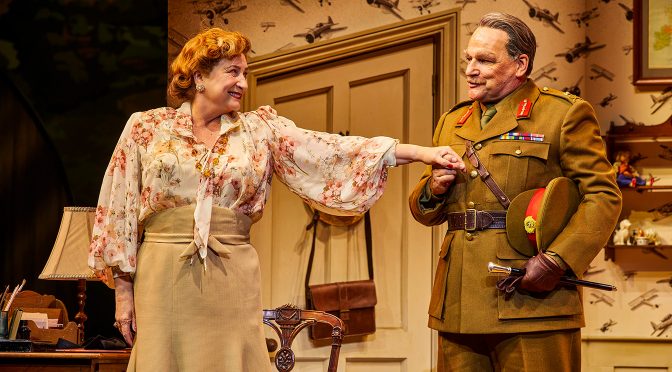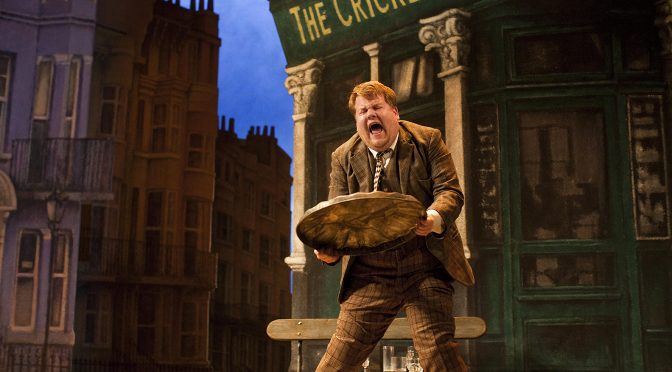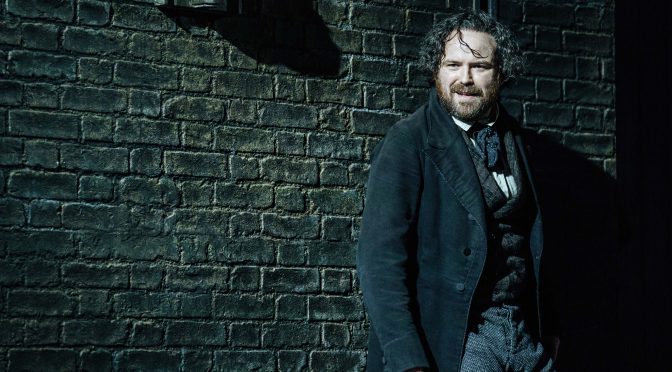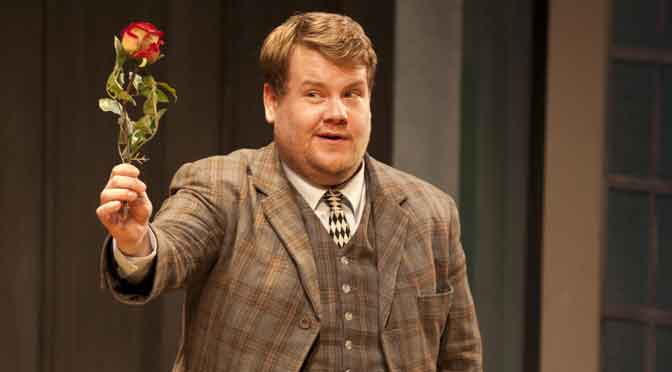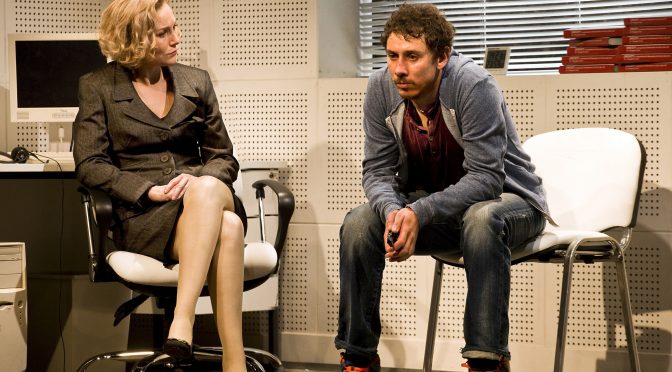Richard Bean and Oliver Chris are back on the South Bank. Eight years after their smash hit show, One Man, Two Guvnors, the writing team have taken on Richard Brinsley Sheridan’s 18th-century comedy The Rivals. It’s the same smart, irreverent humour with blue tones and knowing touches. And it’s very funny.
Setting the action on the eve of the Battle of Britain (Covid delayed the show, which would have been anniversary-appropriate) works well. There’s plenty of commentary on class – which Bean and Chris love. And the relative liberation women experienced during war time is used neatly. Above all, there are many easy jokes about the period that are mined to the max.
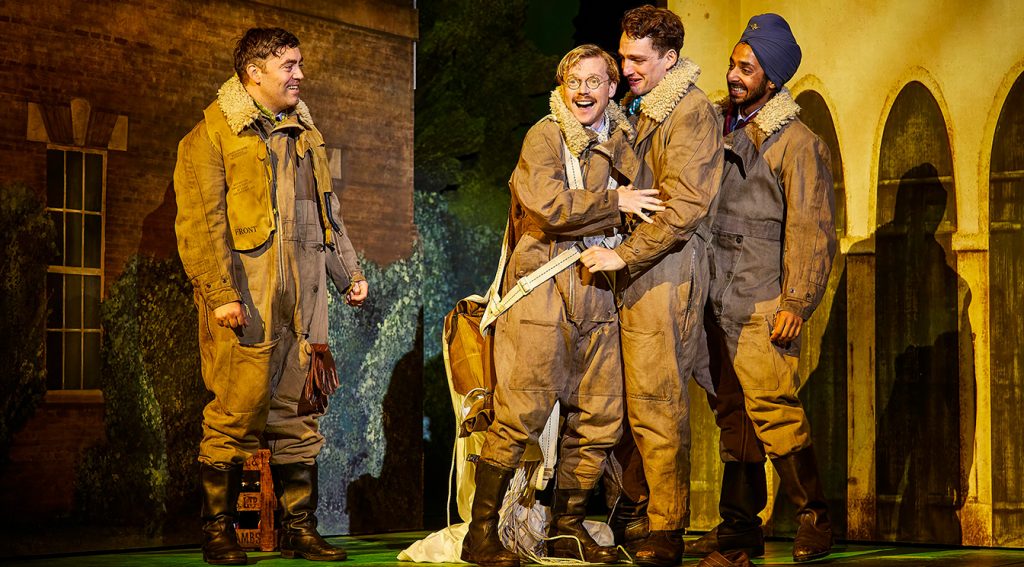
Instead of setting the play in Bath, the location is Mrs Malaprop’s country home, requisitioned by the RAF. The pilots seem like a pretty useless bunch of men (what fun) – especially when it comes to romance. A clueless toff, a clever Indian and a crass Australian all get jokes, although they are predictable. It’s appealing performances from James Corrigan, Jordan Metcalfe and Akshay Sharan that make these roles work. The titular lead comes across as bland, despite Laurie Davidson’s efforts. It’s Jack’s father who impresses, with Peter Forbes delivering a rousing performance as the bumptious army major who has some great one-liners. He’s short tempered and misogynistic but he’s a great guy!
The women do much better, even if the big joke is them wanting (or not) to be ‘modern’. Natalie Simpson, as the show’s siren Lydia Languish, deals with some very long lines very well. Sheridan had his heroine obsessed with romance – this time it’s the desire for a socialist future. Lydia’s target is a working-class man from Up North and she wants to open a lemon farming commune in Barnsley.
Bean and Chris’ odder moments are my preference. Even if the jokes don’t get as many laughs, they are original and unexpected. A preoccupation with geography is endearing. A riff on war wounds even manages to be sweet (kind of). The set, designed by Mark Thompson, echoes unusual perspectives with childlike appeal thrown in.
The maid, played by Kerry Howard, has a few too many jokes about the theatre (she’s a self-proclaimed dramatic device) but is excellent. The star of the show is Caroline Quentin as Mrs Malaprop. The updated malapropisms are strong (my favourite was Mexican for lexicon) and they are delivered superbly: Quentin saves some of the weaker (usually bluer) ones with delicious confidence.
Director Emily Burns keeps the action moving swiftly but with a (slightly) calmer, more contemplative undercurrent than that previously mentioned big hit. Bean and Chris cleverly ensure our respect for the pilots increases as the play goes on. And they have a brave ending that earns them respect, too. Jack Absolute Flies Again is more of an ensemble piece (James Cordon was ably supported but was very much the focus). If this show doesn’t sell as many tickets as One Man, Two Guvnors, it still might be a better play.
Until 3 September 2022
Photos by Brinkhoff-Moegenburg

